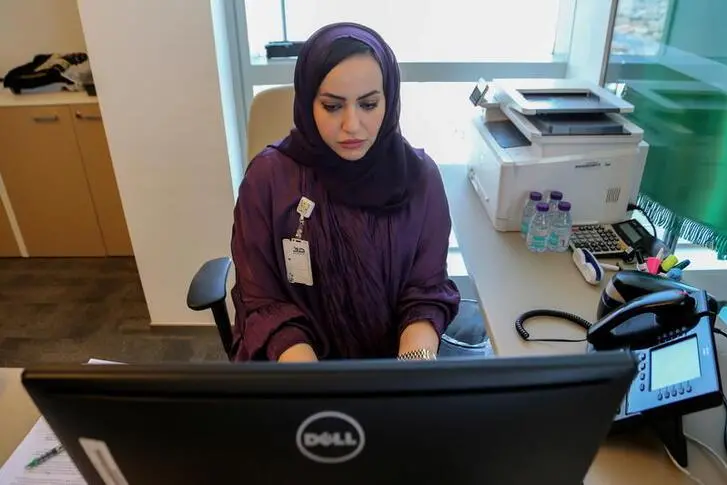PHOTO
While measurable progress has been achieved in recent years, there is room for further improvement to consolidate these changes into a lasting and broad-based transformation.
“Saudi Arabia recognizes that it has a large, untapped pool of talent. There is plenty of work being done to leverage this asset, as empowering women is a goal of Vision 2030,” Lilac Ahmad Al-Safadi, president of the Saudi Electronic University, told Oxford Business Group. In recent years the country has implemented a raft of measures designed to expand women’s economic inclusion. These have ranged from allowing women to drive cars, to changes in labor and family law.
The changes have helped to achieve measurable results; more than 51,000 Saudi women joined the job market in 2020, and the Kingdom aims to provide jobs to about 1 million women by 2030.
The World Bank report awarded Saudi Arabia 80 points out of 100, slightly below the UAE and on par with Chile.
In addition to expanding participation in the workplace, the new measures aim to boost entrepreneurship among women.
“Micro-businesses are an often-overlooked segment of economy, despite generating a notably positive social impact — particularly in relation to the economic empowerment of women,” Ibrahim Al-Rashid, CEO of the Kingdom’s Social Development Bank, told OBG. “However, Saudi Arabia is increasingly paying attention to the segment.”
The number of female entrepreneurs in the Kingdom is reported to have increased by 50 percent in 2019, while a 2020/21 report by Global Entrepreneurship Monitor found that the highest rates of entrepreneurial intentions among women were reported in MENA, with Saudi female entrepreneurs driving this trend.
Looking to the talent pipeline, more young Saudi women are opting to study science, technology, engineering and maths and 38 percent of Saudi STEM graduates are women.
In some fields this share is higher. According to UNESCO, 59 percent of students enrolled in computer science in Saudi Arabia are women, compared to 14 percent and 16 percent in the US and the UK, respectively.
The SEU’s Al-Safadi was appointed president of the institution in 2020, becoming the first female president of a Saudi coeducational university. This month the SEU launched WEmpower, a women’s research accelerator, to give female faculty and postgraduate students a chance to learn from research experts.
Copyright: Arab News © 2021 All rights reserved. Provided by SyndiGate Media Inc. (Syndigate.info).





















